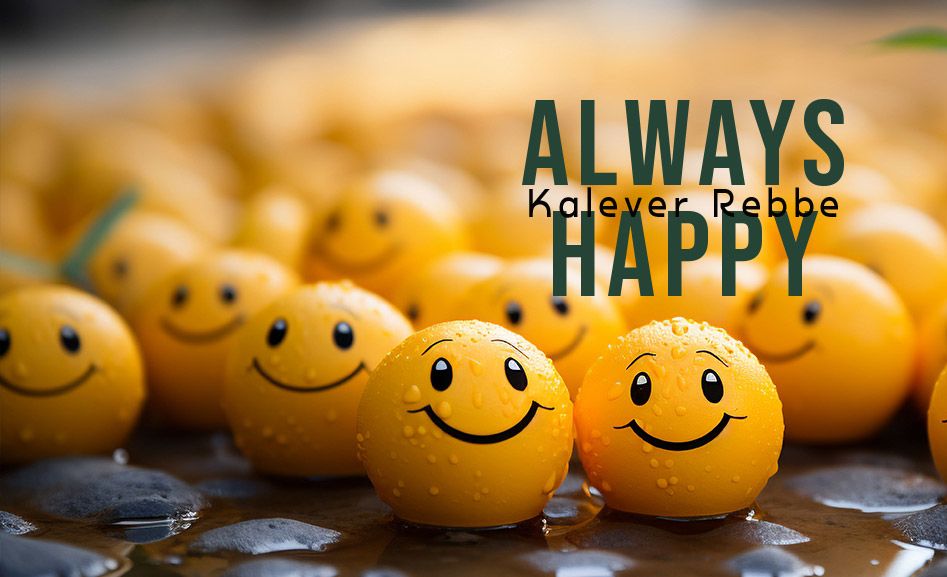
Rewriting History
Making repentance for something is like rewriting history. By atoning for a specific sin, we atone for the past sins and turn them into merits...

Fighting the Evil Inclination is like standing toe to toe with a prize fighter. For every punch you land he comes right at you with one of his own. The ferocious exchange doesn’t stop until the bell rings. This is not a battle to the death. Life and death are physical. This is a battle for our eternity. It is a battle for where our soul will go once her time in this physical world is up.
We have to use every strategy we can to gain any advantage. Here is something to ponder:
 Making repentance for something is like rewriting history. When we atone for a specific character flaw, not only are we atoning for the past sins, we are turning them into merit. We are transforming a sin we committed years ago from a mistake into a catalyst for the repentance we just made.
Making repentance for something is like rewriting history. When we atone for a specific character flaw, not only are we atoning for the past sins, we are turning them into merit. We are transforming a sin we committed years ago from a mistake into a catalyst for the repentance we just made.
This applies to our life story as it plays out . . . and the final cut when it is all over.
Atonement is very powerful.
When we die we are taken to court. We appear before the Judge, the prosecutor, and many witnesses. The room dims. A bright light flashes in front of us and a video or our entire life is shown. For every sin we committed, the prosecutor stands up and makes the courtroom take note of where we went wrong. Things we overlooked or forgot about come back to haunt us with exacting precision. The prosecutor has a field day.
Except for the instances where we made repentance. If we take on the laws of personal holiness, those instances of where we did something we shouldn’t have will be erased. Right as the prosecutor is about to show the court what we did on a Saturday night when we were 22 years old, the film cuts to a Yeshiva. We are learning Torah. The prosecutor fumes at the evidence tampering. He appeals to the Judge for a mistrial. The Judge gives him a stern look as if they had been over this many times before. When we make teshuva for something the past is changed. Our video is forever edited.
We are no longer the people who did what we did!
Once we make repentance for trying or doing something unholy with a member of the opposite sex, we immediately become people who never tried or did anything inappropriate. The video shows us reciting Psalms the Thursday night we took out our online date. It shows us at a Shul lecture the time we went to the bar.
Why wait until the end of our lives to take advantage of these changes?
For those of us who are working on our personal holiness, let’s pretend that we have made a complete repentance and our past has been wiped away. If there is no spiritual record of us going to bars, surfing online in a bad place, or trying to pick up a woman then there is no physical evidence we ever did it. It means we are not people who have ever done these things in our lives. We are not people who would even entertain the notion of such despicable behavior.
This is what we can tell the Evil Inclination. It is a great weapon to use every time.
The Yetzer Hara tries to tempt us into unholiness.
The Evil Inclination uses the past against us. When we take on the responsibility of a sexually moral lifestyle we no longer engaging in the things we used to. All of the “fun” we had in a “former” life has been left in the past. The actions which satiated our lusts are no longer available to us. But we still have them. We have to go a while with the lust and without the outlet. We have to redirect this energy. This is part of the Repentance.
It’s also a big vulnerability the Evil Inclination has a field day with. He taunts us nonstop about how pleasurable it was to fulfill our every desire. He reminds us how great it would be to revert to old habits.
When we are fed thoughts the Evil Inclination is confronting us with, what is the setting of the fantasy it is using? Is it a place we have been before? What about how we are trying to “get what we want?” Have we ever done this before? Is the fantasy based on something we saw on a video screen? How many times does the yetzer hara tempt us with variations of what we used to do in the past that are nothing more than a mouse click away?
How do we stand up to this?
For every time we imagine ourselves in a bar, on a date, or at a website, we remind ourselves of this simple fact:
We have never done this before. We have never set foot in a bar. We have never looked for a “good time” with a date. We have never gone astray while surfing the net. This fantasy must involve someone else because we never did these things and don’t plan on starting ever. Our life story no longer includes this chapter. This is no longer us. It never was. It will never be.
If we need to say it a thousand times out loud or in our heads, Baruch Hashem! In rewriting our past we can recreate our future!
* * *
Dovber Halevi is the author of Sex, Religion, and the Middle East, a book about personal holiness and happiness. He lives in Israel with his wife and three children.








Tell us what you think!
Thank you for your comment!
It will be published after approval by the Editor.